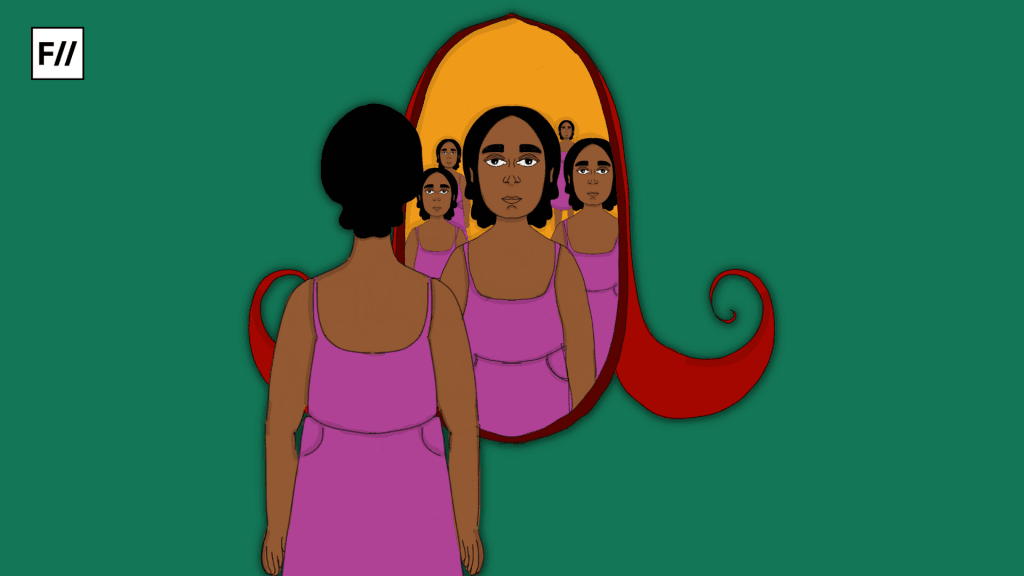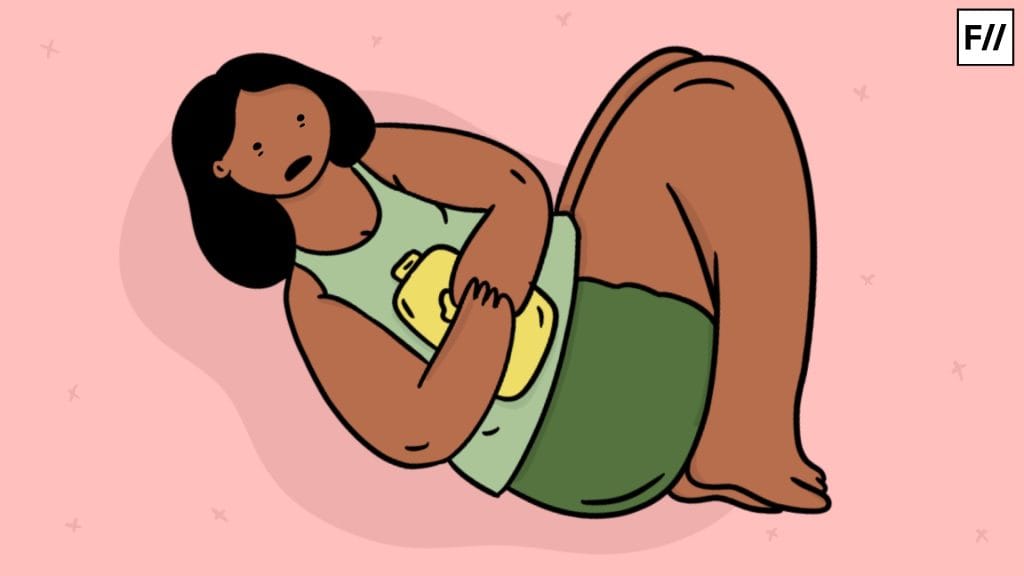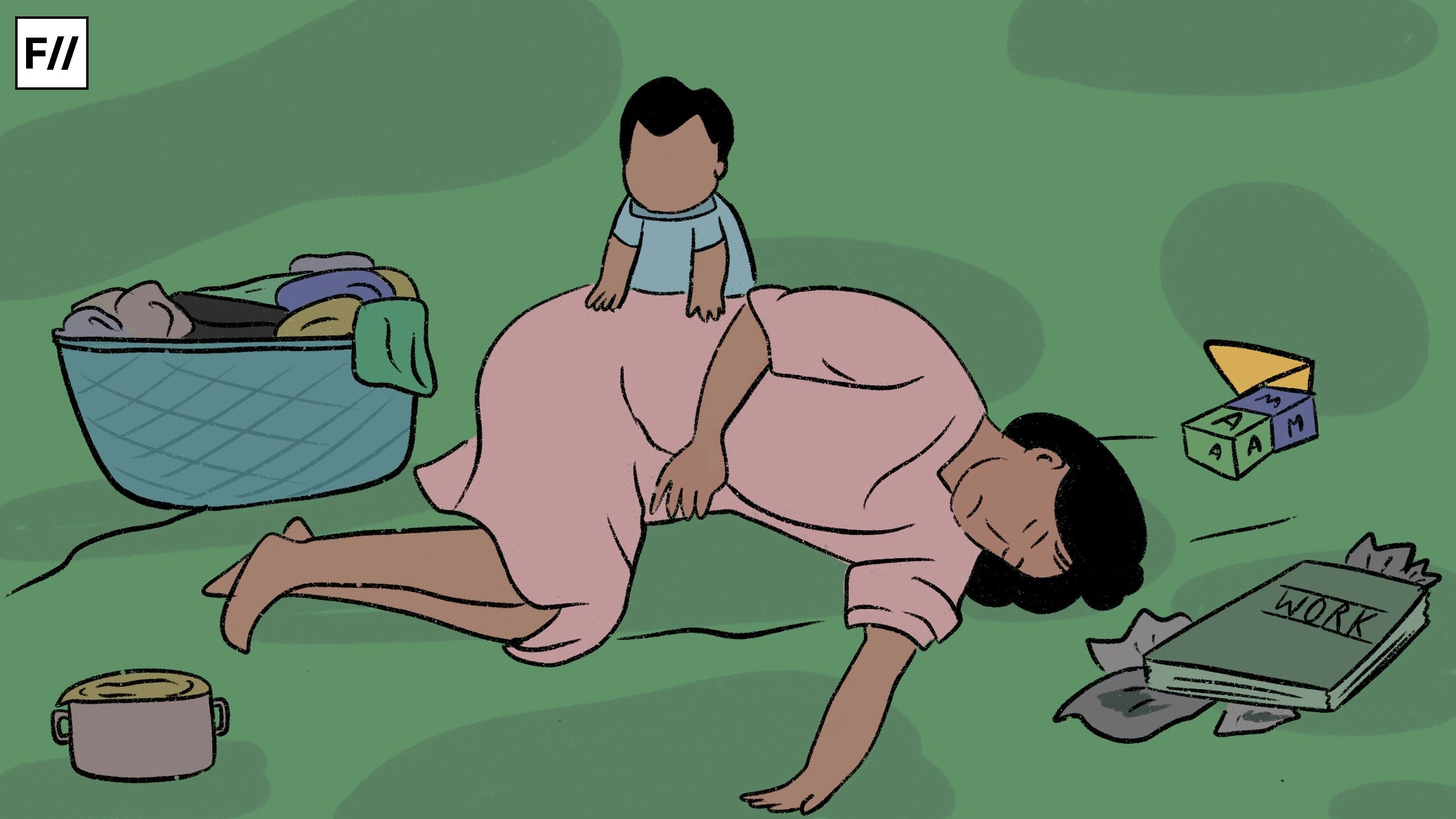‘Bounce-back,’ culture is a fallout of modernism. With its emphasis on progress, efficiency, and self-optimisation, modernism helped to create unrealised expectations for new moms. Following delivery, women are expected to follow toxic societal expectations and quickly return to their pre-pregnancy physique, employment, and social life. It honours speedy postpartum weight loss as a sign of strength, resilience, and productivity. Bounce-back culture makes new mothers think that restoring their pre-pregnancy life is more important than adjusting to parenting and overcoming postpartum depression.
Social media, celebrity culture, and even well-meaning friends and relatives support this unattainable ideal, turning postpartum recovery into a competition instead of a much-individualised healing process. The unhealthy obsession of the modern world with a woman’s size and form often ignores her notable changes, which are more psychological than physical. A postpartum body has conceived, carried, and birthed life; it is a miracle of the human body.
A new mother’s body is not damaged or in need of fixing. It is unfair and detrimental to put such pressure on women to go back to a prior version of themselves, to eradicate the bodily markers of what she has gone through. It undermines the reality that labour is a process needing time, attention, and help rather than an isolated event.
A new mother’s body is not damaged or in need of fixing. It is unfair and detrimental to put such pressure on women to go back to a prior version of themselves, to eradicate the bodily markers of what she has gone through. It undermines the reality that labour is a process needing time, attention, and help rather than an isolated event.
Although society celebrates the birth of a baby, it usually misses the challenges of the mother’s birthing experience. Motherhood reshapes a woman in every possible way, and that change deserves recognition, respect, and space to unfold at its own pace. Despite the tiredness and confusion, there is strength. And there is a love so deep that it redefines her, not by what she has lost, but by what she has won.
The rise of bounce-back culture
Driven largely by media, celebrity culture, and social media platforms, the emergence of bounce-back culture has fundamentally reformed society’s expectations of new moms. Celebrities who swiftly return to their pre-pregnancy selves—Kim Kardashian, Cardi B, Beyoncé—generate irrational expectations among the broader public. Even if these famous women have resources that the average woman does not, the photos nonetheless motivate regular mothers to talk about their struggles. Media depictions that celebrate the ‘yummy mummy‘ ideal, stressing a slender, toned body as the norm of parenthood, aggravate this strain even more. The way parenting is portrayed in popular media feeds distorted tales of resilience, therefore bolstering the bounce-back culture.

Keyser-Verreault (2022) explains how women in Taiwan manage beauty demands, wherein they often place aesthetic standards over their health and well-being. Gill and Orgad (2018) investigate how women’s publications and health-related material often produce the ideal postnatal shape as one that can bounce back with controlled exercise and diet. Social media outlets exacerbate these needs even more since they offer a constant stream of perfectly picked images and stories honouring quick postpartum recovery. Emphasising how quickly they regain their pre-pregnancy form, celebrities and influencers tell their bounce-back tales, therefore encouraging new mothers to consider these events. Emphasising the need for relaxation and self-care above artificial criteria of physical beauty and production, the bounce-back society has to be adjusted to give the mother’s general well-being top priority.
The harmful impacts of bounce-back culture
Postpartum recovery is a crucial yet often neglected phase in a woman’s life, leaving many medical issues unaddressed. As per the WHO, a recent study published in The Lancet Global Health found that more than a third of women (35 percent) experience lasting health complications after childbirth, which can persist for months or even years. These include pain during sexual intercourse (dyspareunia), affecting more than a third (35 percent) of postpartum women; low back pain (32 percent); anal incontinence (19 percent); urinary incontinence (8-31 percent); anxiety (9-24 percent); depression (11-17 percent); perineal pain (11 percent); fear of childbirth (tokophobia) (6-15 percent); and secondary infertility (11 percent). According to Dr Pascale Allotey, Director of Sexual and Reproductive Health and Research at WHO, “Many postpartum conditions cause considerable suffering in women’s daily life long after birth, both emotionally and physically, and yet they are largely underappreciated, underrecognised, and underreported.”
Dr. Pascale Allotey further says, “Throughout their lives, and beyond motherhood, women need access to a range of services from health-care providers who listen to their concerns and meet their needs – so they not only survive childbirth but can enjoy good health and quality of life.” Medical advice stressing the need for enough postpartum recuperation is often ignored by society’s expectations, which force new moms to start physical activities, housekeeping, or business early on, aggravating their health problems. Ignoring the need for rest raises your chance of postpartum haemorrhage, persistent tiredness, and pelvic floor problems. Beyond physical healing, society expects new moms to balance several roles: caring for their babies, running domestic chores, and returning to work, all while fitting into unattainable body image standards. The demand to bounce back physically can lead to immense psychological strain.
While mothers face immense expectations, men are rarely scrutinised closely. Often disregarded are their responsibilities in postnatal recovery and caregiving, which increases the load on new moms in juggling recovery and child care. Many businesses also demand women resume full output soon after birth, thereby neglecting the psychological and physiological consequences of postpartum recuperation. What would genuinely benefit women is a thorough and long-term postpartum care plan with an initial focus on physical and emotional well-being.
Families, businesses, hospitals, and doctors must cooperate outside of quick medical visits to make sure new moms have the time, care, and respect they need. It can only provide women with a better and more robust postpartum experience by questioning unreasonable social expectations and pushing a culture of support.
Why we should celebrate rested mothers instead
Many cultures have recorded the value of rest, as it is vital for the health of a mother and the welfare of her infant. Postpartum confinement is underlined to guarantee women receive the nutrients and care needed for recovery. In India and Pakistan, for example, mothers have a mandatory rest of 40 days post-delivery. During this period, rest and recovery are ensured for the new mom with the help of elders. The fact that postpartum rest helps with breastfeeding and bonding with a newborn is one of the major advantages of relaxation post-delivery.

Research studies by Lee et al. (2022) and Hung et al. (2010) show that the Taiwanese and Korean cultures encourage rest via family aid, dietary care, and emotional support, thus improving recovery outcomes. Mother relaxation, according to Lapillonne et al. (2023), greatly increases the likelihood of successful nursing, promotes bonding, optimises infant nutrition, and helps to lower postpartum depression. Rest is vital for mental health; Adatia et al. (2014) found that sleep deprivation raises BMI and appetite, therefore raising the postpartum depression and anxiety risk. Hung et al. (2011) claim that women who get care at home while recuperating also exhibit greater mental health and less stress. Social support is therefore rather crucial. Dennis et al. (2019) underline that widespread in certain societies, organised postpartum care systems improve mother outcomes. With Polk et al. (2021) stressing differences in postpartum care access, low-income and underprivileged moms especially suffer more difficulties. Giving postpartum rest priority helps ensure a better transition into motherhood, therefore benefiting families and society at large.
Systemic changes to support rested mothers
To assist women who are recovering after childbirth, systemic adjustments are needed that will significantly affect their experiences after giving birth. To begin with, new moms would benefit from adequate maternity leave guidelines, which would include extending the length of leave and ensuring that it is reimbursed properly. These rules would give them the time they need to recover both physically and mentally. Beyond that, shared parenting needs to become accepted.
Encouragement of fathers and spouses to participate actively in child care not only distributes the strain but also helps to reduce the burden sometimes falling solely on women. When companies are willing to lend a hand to new mothers, everyone wins. More and more businesses are offering homeworking or other forms of flexible work schedules to encourage women to return to the workforce without negatively impacting their health or family life. By implementing these societal and occupational reforms, women will have access to a postpartum environment that is more suited to their needs, improving their emotional and physical health, family relationships, and general happiness.
About the author(s)
She is a Research Scholar, currently dedicated to pursuing her doctoral studies in the field of Political Science and International Relations. With more than ten years of hands-on experience across various media-related domains, she has established herself as a seasoned Media Professional.




